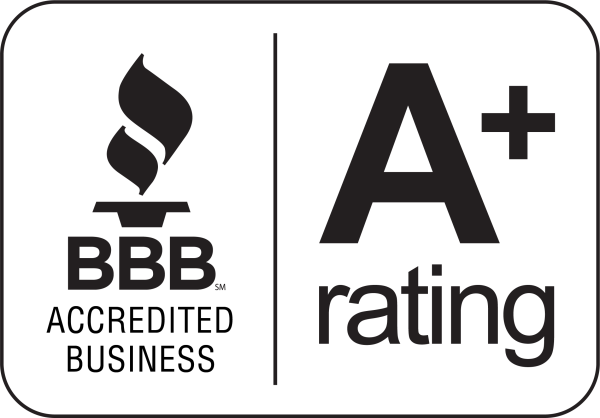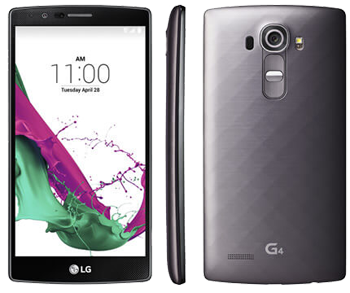
Going all the way back to 2011, I’ve been a critic of the Better Business Bureau. That’s when I first got acquainted with the organization through my at-the-time employment with Vector Marketing—the super-shady MLM company that used plenty of unethical practices but still maintained an A+ rating with the BBB. Outlets like Time and others have since written critical pieces about the way the Bureau sometimes grades businesses.
I’ve always questioned the logic in tattling on businesses to the Better Business Bureau. Should one trust them just because they’re a nonprofit entity?
I didn’t. And for that, I owe the Better Business Bureau an apology after the organization helped me out of a jam with Verizon Wireless.
 Here’s what happened: In August of last year, I traded in my Samsung Galaxy S5 for the LG G4. I didn’t need a new phone, but being a journalist who makes his money through his cellphone, laptop and tablet, I felt that it might be the best move. Signing up through the “Verizon Edge” program, I was paying a premium phone bill that increased from $115 to about $136.
Here’s what happened: In August of last year, I traded in my Samsung Galaxy S5 for the LG G4. I didn’t need a new phone, but being a journalist who makes his money through his cellphone, laptop and tablet, I felt that it might be the best move. Signing up through the “Verizon Edge” program, I was paying a premium phone bill that increased from $115 to about $136.
And for paying through the nose, it felt that I was being punished for wanting to give Verizon more money. As soon as I got the phone, I immediately began experiencing issues with call quality, and took the phone back within a week of initially getting it. My second phone still had similar issues, but I roughed it out. After having it for only a few months, my second version of the LG G4 crashed, re-booted, and froze in the re-boot stage. This happened to the third version of the phone, as well as the fourth version, with each LG G4 only working for a few months before crapping out again.
This was getting to be a serious problem, as it would take a few days to get a phone. Since my livelihood hinges on the ability to get phone calls, text messages and emails, this was beyond the peak of inconvenience and heading toward financial loss. Having been a loyal Verizon customer since Christmas of 2007, I assumed that my complaints carried some weight. Every complaint was met with “oh, what you’re experiencing is not a known issue, and we’ll just get you a new one.”
But this was a known issue, finally acknowledged by manufacturer LG as a “bootloop problem” and cited by such outlets as Android Authority and Tech Times. When I addressed this to Verizon, one of their personnel acted like their phones were somehow mystically impervious to the bootloop issue, saying “it’s not a known issue.”
I addressed these issues to Pulse team members Leslie Yost and Bracken Mayo, who both recommended getting in touch with the BBB. Skepticism flared when I had a phone chat with the president of the Middle Tennessee chapter of the BBB (on a phone now serviced by AT&T after switching carriers), trying to get her to acknowledge the unethical behavior of Verizon toward me.
However, my complaint lodged with the BBB was eventually able to get me $375 credited to my AT&T account that would have been charged for buying out my contract with Verizon. I would not have guessed that they would have pulled through, based on the theory that Verizon wouldn’t have any interest in being actually accountable to a third party if they chose to act that way towards a customer.
Now, why share this back-handed compliment about the efforts of the Better Business Bureau? Well, they don’t seem to be the best at handling the criticisms against them; the network of feedback doesn’t really do a good job of handling its own PR.
But the mountain of questions against the BBB, its grading system and its handling of some of its dialogue with consumers doesn’t bar a good outcome in my case. I was pretty dismissive of the Better Business Bureau, but can now say as a personal witness that they’re the one group that helped me when my back was to the wall.
As I’ve learned something from the experience, perhaps the BBB could learn something here too—about dealing with criticism about how it does business in a more enlightening fashion. Without directly proving the good they can do to some of the skeptics and critics, many consumers are missing out on the one chance they might have at restitution against major disadvantages dealt to them by companies through red tape and poor treatment of customers.
I highly recommend that anyone having an issue with a business’s practices consult the Better Business Bureau and see how they might be able to help you—even if they’re not a member business. They might just be able to help.
Consumer Tip: “Your secret weapon against fraud is to always pay by credit card.” – BBB
If you have received faulty goods, been fraudulently charged or otherwise dispute a charge on your credit card, and the business refuses a refund, you can request a “chargeback” from your credit card company or bank who issued the charge. They will reverse the charge, and then the burden of proof lies on the merchant to affirm they did not act fraudulently or unethically. This chargeback can be requested within 60 days, and sometimes even up to 120 days, from when the charge was made.













